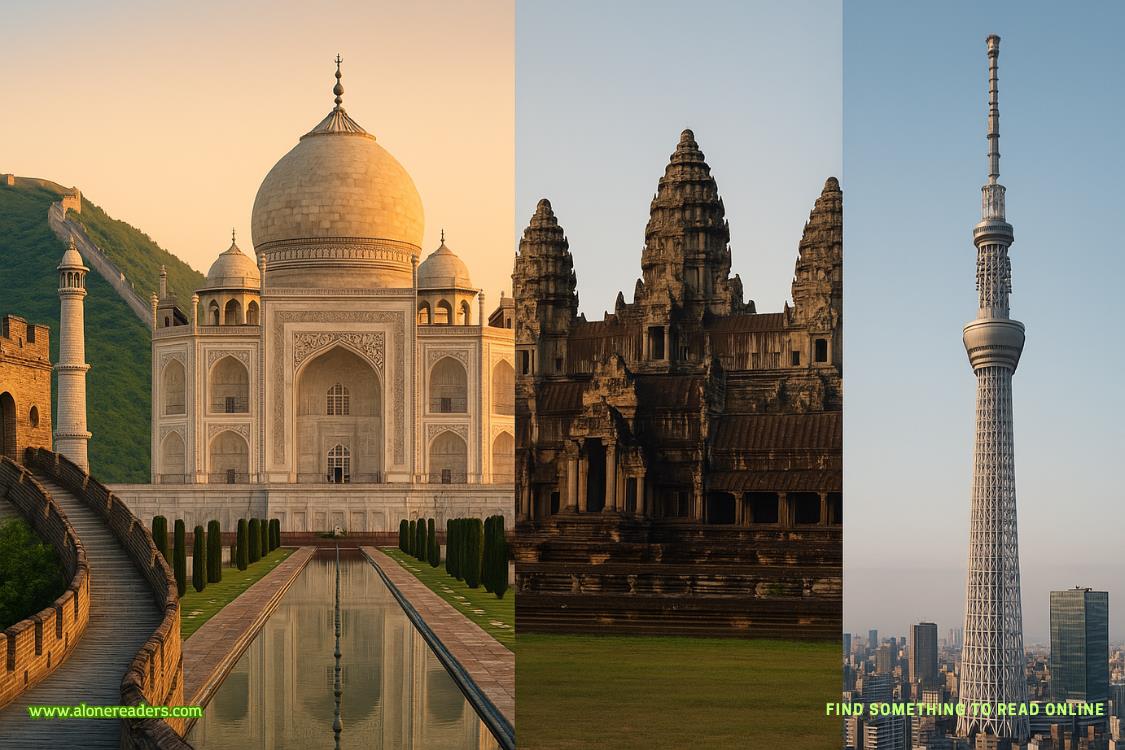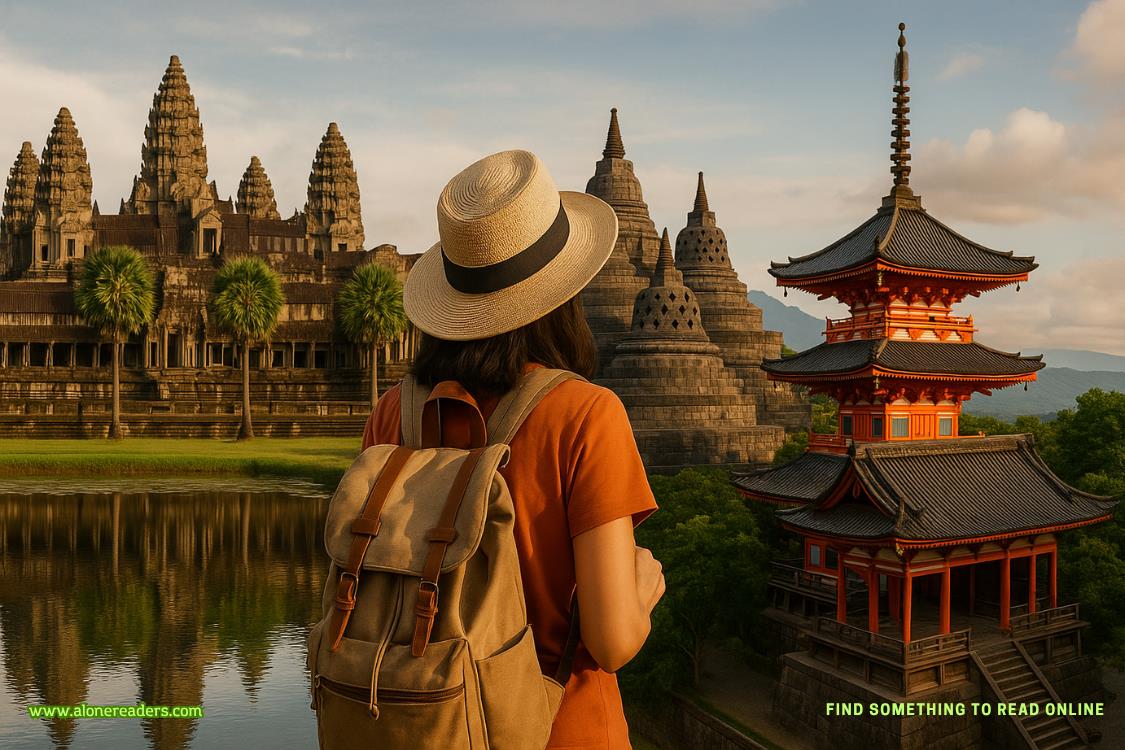Page 142 of Everything Under the Sun
“Anyways, we got three bedrooms in this treehouse: mine and June’s, Jeffrey’s, and the other we keep stuff stored in. When thangs start runnin’ low up here, we bring stuff up from the shed.”
That was all interesting, and I was glad to be given the information so freely, but it still didn’t answer my question.
Finally, Esra got around to that.
“We don’t need much,” he said. “Never have, really. Most of that stuff was what my son, Samuel, and his wife was stockpilin’. We use a little sometimes of this and that, but me and my June always did like the simpler things in life, ya see. She cain’t grow a garden out here for lots of reasons, but she has tomato plants out on the deck; grows basil and thyme and other herbs in the windowsills. I hunt and trap. Got a few blackberry bushes nearby; Jeffrey brings back bucketful’s of ‘em. And he used to fish at the Graham’s pond before yens moved in. We ain’t got a water source close—even the pond is too far for us to get to—so it ain’t easy keepin’ clean, but we manage. We collect rainwater mostly for drinkin’.”
“But why have all this stuff if you don’t use it?”
“Like I said, we use a little every now and then. Durin’ the winter when food’s harder to find. I cain’t hunt much when it’s cold—hurts my damn bones—but we break into the food in storage. Them MRE’s kept us alive last winter, that’s for sure.”
Esra shook a long, knotted finger at me; a look of lecture in his beady eyes. “Way I see it, havin’ all that stuff on hand…well, cain’t just use it all up and not work for the things ya need, thinkin’ ya have all ya need already”—he shook his bald, liver-spotted head—“no, ya act like you ain’t got no stockpile, hunt and work hard for your daily needs, and only if you’re practically dyin’ because ya cain’t hunt no more or fish or trap or garden, do ya break into the goods as a last resort. Woman, bring me my damn smoke, will ya!”
I glanced at the pink lemonade, and then the two cigars June carried into the room and handed to each of us.
A cigar? I couldn’t remember the last time I’d seen one; my eyes glistened and my mouth watered like a child’s over an ice cream cone.
“I guess you were really in need of these cigars and that sweet drink, then,” I said, and then bit the tip off before putting the cigar in my mouth.
Esra chuckled; June lit the end of his cigar with a lighter.
“Well,” Esra said, “cain’t grow a cigar on a tree, or sugar in a tomato pot—gotta allow yourself a treat every now and then, duncha?” Heavy, sweet-smelling smoke billowed from his mouth.
I nodded, puffing on my cigar merrily.
“How did you put out the fire?” I asked.
“What fire?”
Esra looked confused for a moment, but then he understood.
“Oh, the old cabin—it burned itself out after a while, but back then there wasn’t as many trees or vines or bushes close enough to catch the forest on fire. Thank God for that. We went down there after the intruders was dead, and we threw dirt and mud on what we could. It had rained the night before, too—everythin’ was real good and wet when the fire started; I imagin’ that really kept it from spreadin’.”
I nodded, puffing on my cigar.
I glanced across the room again to see Thais. She laughed and smiled and carried on with Jeffrey as if they’d known one another forever. She was so beautiful, so full of life and spirit, reveled by Jeffrey’s joy so much so she had no idea her own joy easily lit up an otherwise shadowy room.
I frowned when I heard Esra’s voice again—I wanted to enjoy Thais a little longer.
“We’ve been lucky so far, but I don’t reckon it’ll last forever.” Smoke rose from his lips and circled his bald head in wispy coils.
Last forever. No, nothing lasts forever.
“I worry most ‘bout the soldiers comin’ through here”—(my ears perked up)—“I’m surprised they haven’t already. We’ve seen ‘em from the deck; even seen ‘em at the Graham’s place. That was after Terry kilt ‘imself; but there had’ta been at least thirty of ‘em. Probably from Chicago, maybe Lexington.”
My heart stopped. I coughed, choking on the cigar smoke. I set the cigar in the ashtray on the table, and tried to keep the worry—and the guilt—from my face.
“I reckon God’s protectin’ us. Cain’t really be any other reason why a group big enough to take this place hadn’t come through in all this time. But even God has limits. Nobody lives forever—June! Come get my cup! It’s empty!—Them soldiers are somethin’, I tell ya.” Then he grumbled under his breath, “Ain’t real soldiers though—just bastards wearin’ the uniforms.”
Not real soldiers—just bastards wearing the stolen uniforms of real ones. I sat with my back hunched over, my elbows propped on my legs, my hands suspended between my knees. Maybe it was just the guilt, but I couldn’t shake the feeling I was going through what Mark Porter went through before I’d killed him: trying to hide who I really was, the things I’d done.
Then I pressed my back against the chair and propped my ankle on my knee so I appeared casual rather than guilty.
“It is surprising,” I said, “that no raiders have come through here.”
What I didn’t say was: I remember talk of scouting parties being sent to the Shawnee National Forest—you’re a lucky man, Esra, to have been overlooked by them. Men like Marion, who led the scouting party that brought Thais and her sister to Lexington City would’ve killed Esra and June and even Jeffrey—too old and too handicapped to be of any use—and they would’ve had a field day with the supplies here.
“Say—were you a soldier?” Esra asked. “Ya got that look about you.”
- The Hollywood Billionaire's Fangirl Wife by Marian Tee
- The Mechanic's Virgin by Jenna Rose
- Perfect Three by Suzy Shearer
- Silver Fox Daddies by Liz Archer
- Sassy Pants by Glenna Maynard
- Neighbor DADDY by Lena Little
- Forgotten Dreams by Natasha Madison
- Last Hand by Jessica Hall
- Knocked-up Bratva Bride by Rina Lawson
- Domination by B.J. Alpha
- Cruel Revenge by Kira Cole
- Selfish Suit by Whitney G.
- Burned to Obey by Wynter Raven
- The Therapist by K. Larsen
- Obsession by J.O. Mantel
- Pursuit of Her by Emily Hayes







